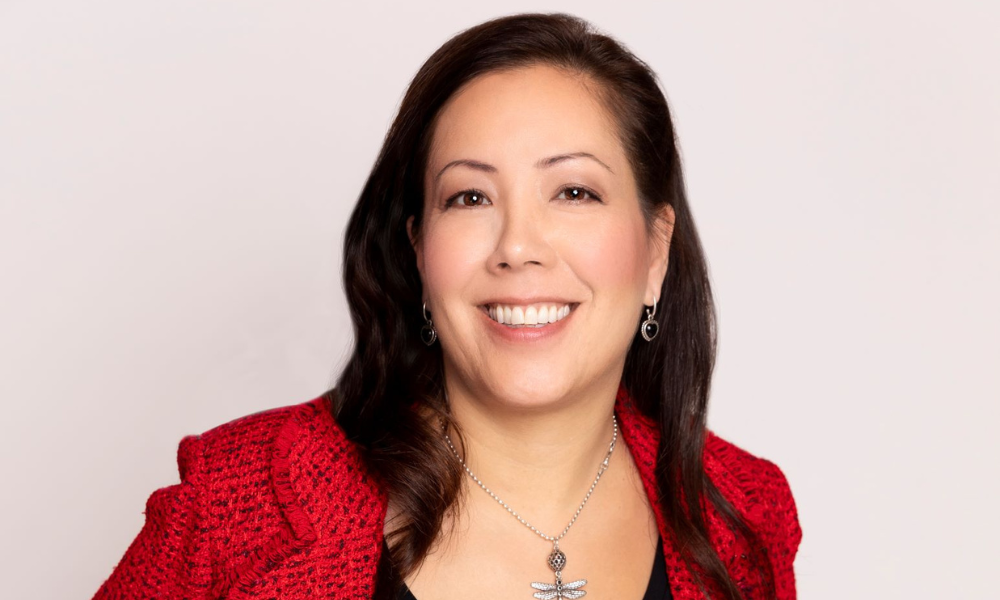Financial Planning Association of Canada’s new leader sheds light on near-term plans and long-term vision

For Julia Chung, the start of 2024 was truly a new beginning as she officially took the helm at the Financial Planning Association of Canada (FPAC).
“It’s a little bit daunting and exciting at the same time,” Chung, who’s stepped in as the second president of FPAC after Jason Pereira, told Wealth Professional. “It’s a volunteer position and definitely a large commitment, and there’s so much to be done.”
Chung certainly is well-positioned for the role. Aside from being one of FPAC’s founding members – she was a co-founder of the Advice-Only Planners Forum, a smaller predecessor organization – she’s served as the vice president of FPAC since its inception.
Outside of FPAC, her decades-long career includes extensive experience in CEO roles and organizing teams, as well as serving on various boards. As the co-founder and CEO of Spring Planning, she firmly embodies the association’s vision and mission to emphasize financial planning as a profession in and of itself.
“People who work in this field often also have interrelated functions in their career, like insurance and investment management,” Chung says. “FPAC is focused purely on financial planning, treating that expertise as a profession, and really creating a community around that.”
Collectively, she says FPAC’s members are driven by a desire to push the envelope for financial planning, both for the professionals in the industry and the clients they serve. That message has rung through loud and clear in its conversations with regulators and other organizations, with Pereira having stood as the face and voice of FPAC since its inception.
FPAC also provides education to its members, but as Chung explains, it’s more of a community-based style of learning, in contrast to the curriculum-based activity one might expect from other organizations that provide formal designations.
“We’re still a fairly small organization. To be long-term sustainable, we need to increase our membership,” she says. “We’ve got a really active membership committee headed up by Karen Mizgala, who's on the board of directors and the CEO of Money Coaches Canada. … We’ve got a few things planned to roll out over the next year or so to not only increase our numbers, but also improve the experience for current members.”
To support its efforts around building membership, FPAC hired its first executive director, Joanna Schultz – something Chung set as a precondition to becoming president.
“I’m very happy to be a strategic leader, but we need somebody who’s going to live and breathe and be this organization every single day. Since we hired her in 2022, she's done amazing things just to improve communications and structure in the organization,” she says. “We’ve also got a virtual administrator, who’s been with us for a couple of years now, and we’ve hired a copywriter.”
Going by the mantra “how you do anything is how you do everything,” Chung is looking for ways to professionalize FPAC just as it seeks to professionalize financial planning in Canada at large. As one of her first orders of business, she’s looking internally for ways to make the organization sustainable, which includes succession planning and creating clear policies.
“We’re also making an update to our charter, which was written before the organization even existed. Once we’re done with the draft, we’ll release it to our members and take a vote on it as well,” she says.
What Chung wants to achieve by the end of her term, ultimately, is build an organization of financial planners that will be around for generations to come. As one of the first steps in that long journey, she’s looking forward to an upcoming joint virtual webinar with Tashia Batstone, the president and CEO of FP Canada, on the future of the financial planning profession in the country.
“That’s really what I love … we’re a community of people who get together and help each other. There's this sense of camaraderie,” she says. “There’s no competition. The feeling we all get is that ‘if I help you do better, that means we all do better.’”



